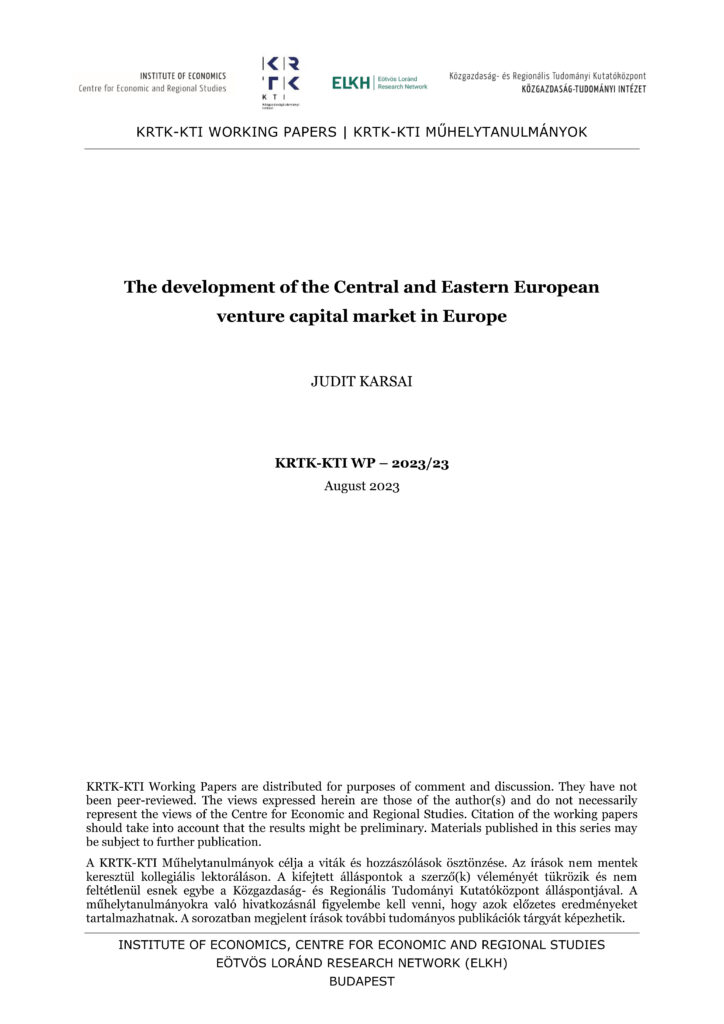The working paper examines the role and development of the Central and Eastern European venture capital sector in the five years between 2016 and 2020. This period includes both the end of the recovery after the economic crisis in 2008 and the downturn due to the coronavirus crisis in 2019. A statistical analysis of venture capital funds and investments in the CEE region confirms that, while the overall position of the region in Europe did not change over the period under review, the differences between countries in the region increased sharply. The northern part of the region rivals the most developed countries in Europe, the central part is driven by an abundance of public resources, while the venture capital sector in the south is only in its infancy. The size of the venture capital funds in the region is far below the European average, so the start-ups only have a chance to become successful if they are involved in the international flow of venture capital. The role of the government in the funds in the region is extremely high, but the selection between companies is therefore not based solely on market considerations. Rent-seeking behaviour goes against the essence of venture capital. As a result of the deterioration of the global political and economic situation, the entire Central and Eastern European region is losing its ability to attract capital.
Publikációk / The development of the Central and Eastern European venture capital market in Europe
The development of the Central and Eastern European venture capital market in Europe
- 2023.08.03
- | 13:45

2025
Aug
31
M
T
W
T
F
S
S
28
29
30
31
1
2
3
4
5
6
7
8
9
10
11
12
13
14
15
16
17
18
19
20
21
22
23
24
25
26
27
28
29
30
31
1
2
3
4
5
6
7
Next month >
a
2025
Aug
31
M
T
W
T
F
S
S
28
29
30
31
1
2
3
4
5
6
7
8
9
10
11
12
13
14
15
16
17
18
19
20
21
22
23
24
25
26
27
28
29
30
31
1
2
3
4
5
6
7
Next month >

